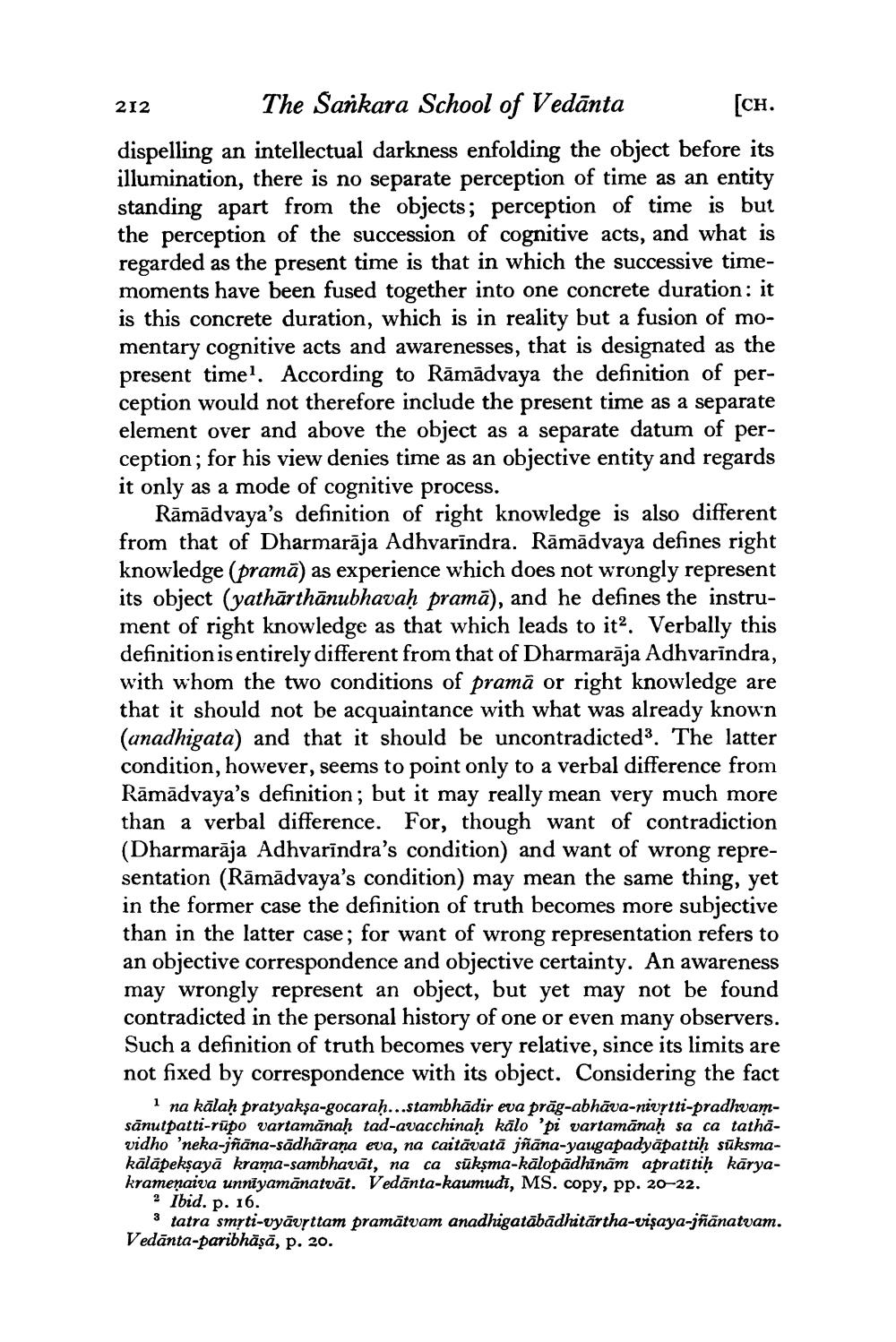________________
212
The Sankara School of Vedānta [CH. dispelling an intellectual darkness enfolding the object before its illumination, there is no separate perception of time as an entity standing apart from the objects; perception of time is but the perception of the succession of cognitive acts, and what is regarded as the present time is that in which the successive timemoments have been fused together into one concrete duration: it is this concrete duration, which is in reality but a fusion of momentary cognitive acts and awarenesses, that is designated as the present time'. According to Rāmādvaya the definition of perception would not therefore include the present time as a separate element over and above the object as a separate datum of perception; for his view denies time as an objective entity and regards it only as a mode of cognitive process.
Rāmādvaya's definition of right knowledge is also different from that of Dharmarāja Adhvarīndra. Rāmādvaya defines right knowledge (pramā) as experience which does not wrongly represent its object (yathārthānubhavaḥ pramā), and he defines the instrument of right knowledge as that which leads to it?. Verbally this definition is entirely different from that of Dharmarāja Adhvarīndra, with whom the two conditions of pramā or right knowledge are that it should not be acquaintance with what was already known (anadhigata) and that it should be uncontradicted. The latter condition, however, seems to point only to a verbal difference from Rāmādvaya's definition; but it may really mean very much more than a verbal difference. For, though want of contradiction (Dharmarāja Adhvarīndra's condition) and want of wrong representation (Rāmādvaya's condition) may mean the same thing, yet in the former case the definition of truth becomes more subjective than in the latter case; for want of wrong representation refers to an objective correspondence and objective certainty. An awareness may wrongly represent an object, but yet may not be found contradicted in the personal history of one or even many observers. Such a definition of truth becomes very relative, since its limits are not fixed by correspondence with its object. Considering the fact
1 na kālaḥ pratyakşa-gocaraḥ...stambhādir eva prāg-abhāva-nivytti-pradhvamsānutpatti-rūpo vartamānaħ tad-avacchinaḥ kālo 'pi vartamānaḥ sa ca tathāvidho 'neka-jñāna-sādharana eva, na caitāvată jñāna-yaugapadyāpattih sūksmakālāpekṣayā krama-sambhavāt, na ca sūkşma-kālopādhīnām apratitih kāryakramenaiva unnīyamānatvāt. Vedānta-kaumudi, MS. copy, pp. 20-22.
? Ibid. p. 16.
3 tatra smrti-vyāvíttam pramātvam anadhigatābādhitārtha-visaya-jñānatvam. Vedānta-paribhāṣā, p. 20.




